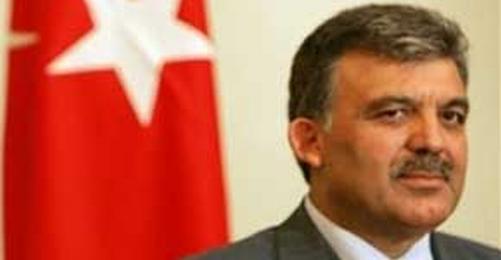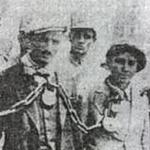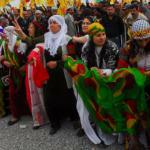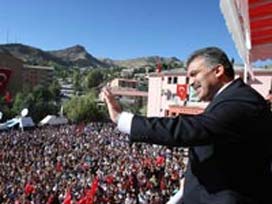President Abdullah Gül met with representatives of 15 non-governmental organizations in the city of Tunceli in the east of Turkey, a pre-dominantly Kurdish region of the country. Gül was quoted as saying, "If the terror does not stop and the armed people on the mountains [PKK members] stay where they are, we cannot carry on with the initiative".
Gül started yesterday's meeting (5 November) by pointing out that differences bear richness, referring to the diversity of ethnic groups in the country. He emphasized that Tunceli is a symbol of the Alevi in Turkey. Gül listened to opinions and requests on topics like the dams being built in and around Tunceli, reforms on the Department of Religious Affairs and Cem houses (Alevi's houses of assemblage) or general human rights to name just a few examples.
Aygün: an important symbolic visit
Among the group of people meeting the president were vice president of the European Dersin Federation Mehmet Gülmez, lawyer Hüseyin Aygün who publishes his writings on bianet, Democratic Society Party (DTP) provincial chairman Veli Haydar Güleç, Labour Party (EMEP) provincial chairman Hüseyin Tunç, Trade and Industry Chamber chairman Yusuf Cengiz and Besi Kaya as a citizen of Tunceli.
Aygün told bianet that first of all Gül's visit had a symbolic importance. Another important aspect is that Gül as the president visited an Alevi cem house, Aygün said.
Problems: dams, cem houses, Department of Religious Affairs...
Overall, the participants requested to stop the construction of dams in the Tunceli region. The dam project is sharply criticized by environmentalists and locals because it destroys unique ecosystems, especially in the valley of the Munzur river. Furthermore, unemployment was discussed as well as the continuation of the government's democratic initiative. Gül also faced demands considering a sought legitimacy of cem houses and the reform of the Department for Religious Affairs.
Lawyer Aygün asked Gül to step in for 86-year-old Yusuf Kaplan who is in prison because of "helping and accommodating the PKK organization".
1938 military operation also on the agenda
In 1938 approximately 12,000 people from the Tunceli region (then known as Dersim) were deported by force to different regions of Turkey in the course of a military operation. Aygün argued it was very important for interior peace to give a message of conciliation or apology from the state. The lawyer also requested to disclose the location of the grave of Seyit Rıza and his companions, who were executed back then. "This is not a difficult issue, it is in the state archives. If the political authorities initiate the request, it will be done within one day", Aygün indicated.
After listening to the participants, the president said he would have the demands and suggestions reviewed by experts and that he was going to concern the named topics.
Actions in the city centre
On the morning of Gül's visit to Tunceli, the Democratic Rights Federation (DHF) made a press release regarding the president's visit. After the meeting with the representatives of the NGO's, a demonstration was run in the city centre with slogans such as "Munzur will flow freely" and "pressure cannot intimidate us". (EÖ/VK)













